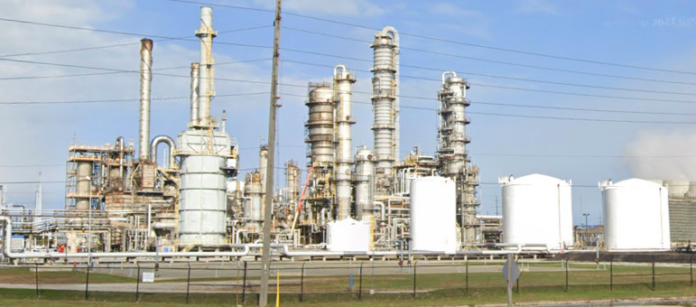Says closure could affect gas production in Eastern Canada
INEOS Styrolutions says the Ministry of the Environment’s time table for action to deal with benzene emissions at its Sarnia plant are “simply unrealistic” and is considering an appeal.
And the company says it’s shutdown could have wider economic impact than just at the plant.
Styrolutions was shutdown by the Ministry of the Environment in the wake of high benzene emissions into the air which began April 16. The cancer-causing chemical made a number of members of the Aamjiwnaang First Nation – right across the road from the plant – ill enough to go to the emergency department for treatment. April 26, Aamjiwnaang officials declared a state of emergency in the community after another reading at the bands air monitors which was 424 times higher than the Ontario regulations.
The company denies it exceeded the provincial standards saying its state-of-the-art air monitoring system did not detect high levels of benzene in the air around the plant.
But May 1, the ministry effectively shutdown the plant on Tashmoo Road by pulling its Environmental Compliance Approval and outlining what Styrolutions has to do to start production again.
“The ECA has been amended to add conditions that the facility must meet including the suspension of production operations at the facility, removal of all benzene storage from the site, repair of leaky equipment and installation of full vapour control on vessels containing benzene, and a comprehensive benzene monitoring and community notification plan,” ministry officials said in a news release.
Styrolutions must submit a start-up plan to the ministry for review before it can resume normal operations.
Thursday and Friday, company officials met with Chief Chris Plain of the Aamjiwnaang First Nation and Sarnia Mayor Mike Bradley. Bradley says discussion was around “their options and what they may or may not do” as well as “the profitability of the plant.”
In a statement late Friday, company officials reiterated the air monitoring system which the ministry specified for the plant, detected no emissions exceeding the prescribed limits in the weeks before the initial MECP order issued April 16.
Officials say Styrolutions “has the expertise and the intent to continue to implement planned improvements on benzene emissions abatement at the site, safely and effectively.”
But, the company says the ministry orders will require “significant investments” and “the required timetable for actions is simply unrealistic.
“Our engineers and technical teams have raised significant concerns about safety and elevated emissions if the ministry insists on the ill-informed timelines contained in its May 1, 2024, order.”
The statement goes on to say the ministry “refuses to discuss a technically safe timetable” for improvements and that a new emission standard was applied retroactively.
MECP Spokesman Gary Wheeler told The Independent in an email “There is no specific deadline for the start-up.”
Styrolution says it is considering its options.
“We are considering whether to appeal the order from the MECP to enable us to safely and effectively, implement newly-designed equipment systems on site, to meet the new emission standards, address the concerns of the Aamjiwnaang First Nation and to continue to serve the wider economic needs of Canada.”
That economic piece could be significant according to Sarnia’s mayor.
Styrolution uses benzene – a by product of making gasoline – from other Sarnia companies such as Imperial. Bradley says with Styrolutions closed – likely for months – to deal with the ministry order, those companies will have to find another place for the benzene. “If the (Styrolutions) plant can’t function, where do those companies ship their benzene?”
INEOS Styrolutions officials say their plant shutdown could have an effect on gas production and the local and national economy.
“The Sarnia plant is now closed, the flow of all products into and out of the site is currently stopped and the plant cannot be restarted until the requirements set forth in the May 1, 2024, order is satisfied. This will likely impact the refineries that produce most of Eastern Canada’s gasoline.”
Bradley says during the Friday meeting, Stryolutions officials said the cost to deal with the benzene emissions is high. They suggested, Bradley said, the possibility of appealing the May 1 order which shut the plant down. Styrolution has until May 15 to make that decision.
Bradley says the company is looking at “all its options” including whether it should close the plant. He’s concerned about the economic impact of that to the community and on the petrochemical companies in the area. However Bradley is firm, the company needs to meet provincial standard.
“I want to see them get to those (provincial) standards and keep the jobs in the community and I don’t want to see people’s health impacted.”





